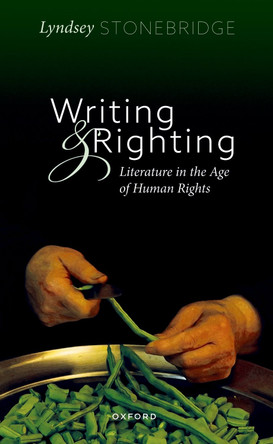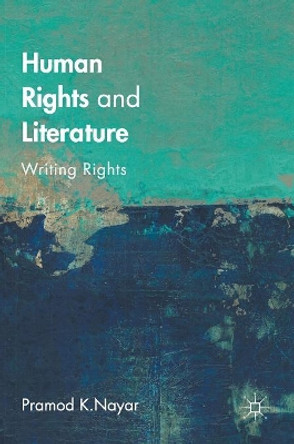Description
About the Author
Lyndsey Stonebridge is Interdisciplinary Professor of Humanities and Human Rights at the University of Birmingham. Her recent books include: Placeless People: Rights, Writing, and Refugees (OUP, 2018), winner of the Modernist Studies Association Best Book Prize, 2019, and The Judicial Imagination: Writing after Nuremberg (Edinburgh University Press, 2011), winner of the British Academy Rose Mary Crawshay Prize, 2014. Her other books include The Destructive Element (1998), Reading Melanie Klein (with J. Phillip, 1998), The Writing of Anxiety (2007), and British Fiction after Modernism (with M. MacKay, 2007). She is currently collaborating on a creative and interdisciplinary project with refugees and host communities in Lebanon, Jordan, and Turkey, Refugee Hosts. A regular broadcaster and media commentator, she has written for The New Statesman, Prospect, and The New Humanist.
Reviews
Each of Stonebridge's case studies are about moments like this-moments when the limits of our moral and political worlds become unbearable, when the routine language of justice rings hollow, when people begin to speak and write outside the boundaries of what is expected and accepted. In our world of baffled and defeated outrage, nothing could be more necessary. * James Dawes, Macalester College, 1240 ALH Online Review *
Over the past 20 years, Lyndsey Stonebridge has emerged as one of our most interesting literary critics. She brings together modern writers and their experience of some of the darkest episodes of the 20th century: exile, war crimes trials, humanitarian disasters... The book often has the strengths of Stonebridge's earlier works. She moves between detailed literary criticism and large questions about human rights and contemporary society. Perhaps most important of all is the originality of her subject, expanding the remit of literary criticism... Stonebridge is at her best offering fascinating close readings that open onto big, important subjects. * David Herman, New Statesman *
Stonebridge is an immensely gifted writer and thinker. Her new book will help to revitalise literary criticism. * Bryan Cheyette, Times Higher Education *
Pithy and powerful, this book plumbs the crucial questions of our times. If its focus is on what literature can be and do, its preoccupation is with the ethics and politics of writing in a world where liberal individualism and the pursuit of rights has tipped us into a malign logic of totalitarianism. Stripped of citizenship, millions are stripped of the right to be heard. Yet words can make injustice visible, sometimes in their intensity, even take on performative power. Stonebridge's literary ammunition comes from both history and the present, from Virginia Woolf to Kamila Shamsie, from Freud and Sartre to writers like Yousif Qasmiyeh in a refugee camp, while Hannah Arendt's philosophical force underpins her arguments. This is a passionate book, quick to read, but with a slow burn. * Lisa Appignanesi, author of Everyday Madness: On Grief, Anger, Loss and Love *
Magnificenta journey across our times, told with eloquence and depth, ideas and observations abound, opening vistas aplenty * Philippe Sands, author of East West Street *
This slim but comprehensively researched, rigorously argued volume tackles human rights, literature, moralities, philosophy, aesthetics as well as our discourses about these in a complex, nuanced and yet completely accessible way. It makes for a challenging, thought-provoking, illuminating, and at times discomfiting read. This volume -to borrow from Stonebridge herself -is a must read for lawyers and philosophers, ideologues and academics, to thinkers, writers, teachers, readers, artists, activists, survivors and indeed each one of us who has ever lost themselves to a story that may be our own or entirely of another. * Sunny Singh, Professor of Creative Writing & Inclusion in the Arts, London Metropolitan University *
Book Information
ISBN 9780198814054
Author Lyndsey Stonebridge
Format Hardback
Page Count 176
Imprint Oxford University Press
Publisher Oxford University Press
Dimensions(mm) 224mm * 145mm * 16mm










